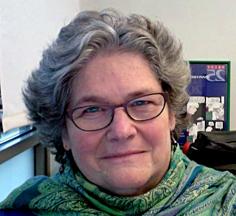Disability Rights Education and Defense Fund
Purpose Prize Fellow 2013
Breslin has spent decades successfully advocating for the rights of people with disabilities–and now she’s reforming health care.
The co-founder of Disability Rights Education and Defense Fund (DREDF), Mary Lou Breslin has been a disability civil rights law and policy advocate for more than 35 years. Disabled herself, she played a key role in the creation of groundbreaking legislation – including the 1990 Americans with Disabilities Act, which enshrined broad civil rights for 54 million people in the U.S. with disabilities.
In 2004, she set her sights on reforming access to health care for people with disabilities when a friend who used a wheelchair died from cancer after suffering through 18 months of poor care, inadequate medical equipment and a lack of disability “literacy” among health care providers. “I learned over time her experiences were not unusual,” she says. “These events impelled me to forge a new career dedicated to improving access to health care for people with disabilities.”
Since then, Breslin has successfully pushed for changes in policy and standards at both the state and federal level. In California, she’s worked with selected Medicaid managed care organizations to develop model disability policies, and in Washington her research was key to the inclusion of accessibility requirements in the 2010 Affordable Care Act.
“I knew going into this new career that to reverse deeply entrenched policies and attitudes would take a long time,” she says. “After almost a decade of policy advocacy, research and training and collaborations, we can report some important incremental changes—and a few splendid victories.”




